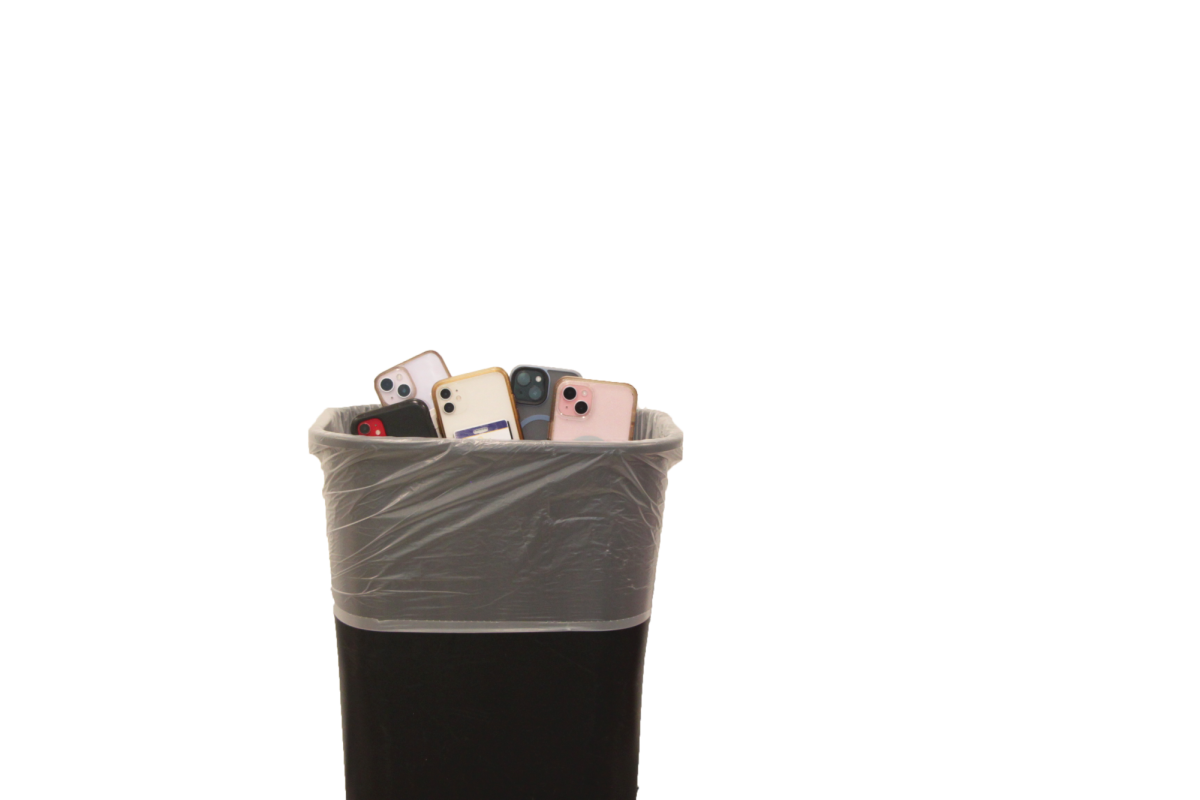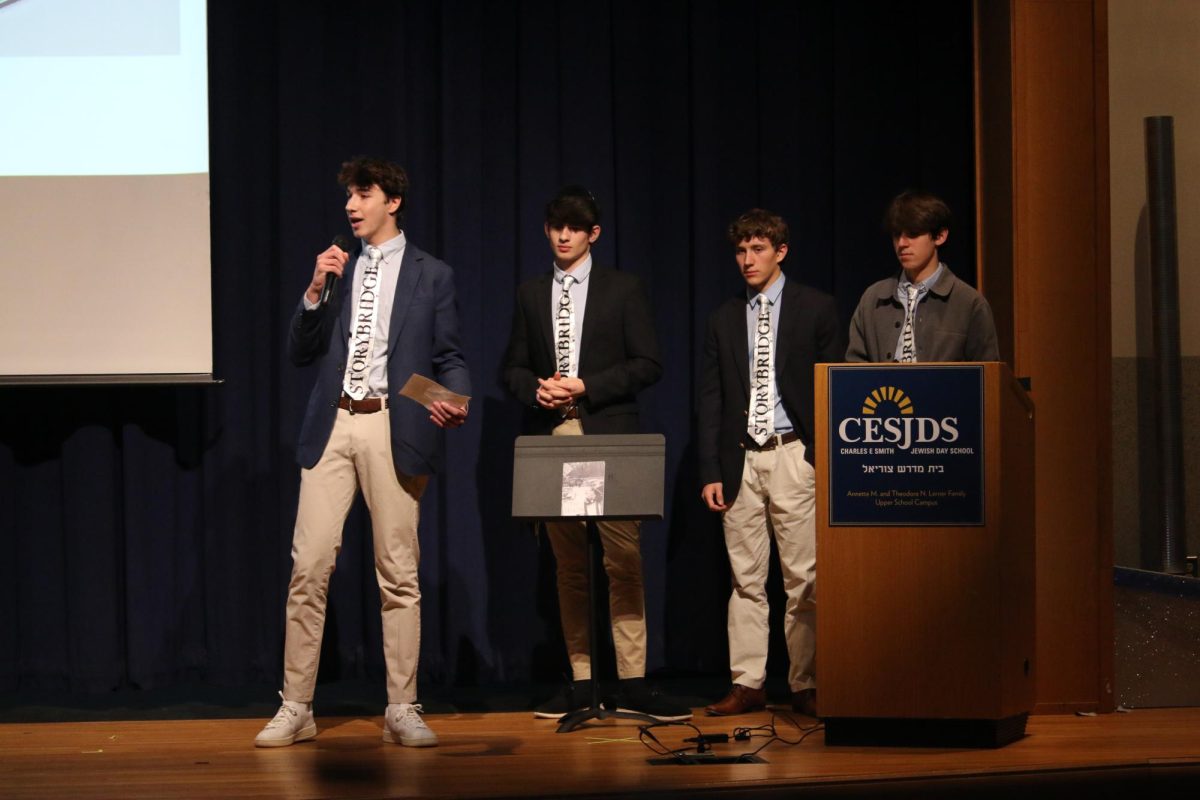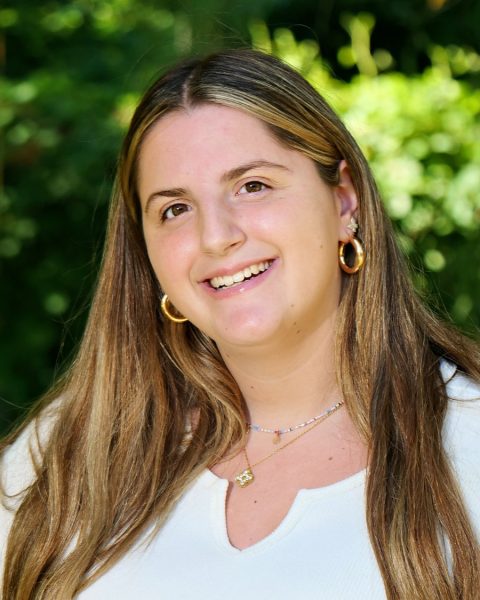In the past few months, schools across the country have been banning smartphone use during the school day. In fact, according to the AP News, most schools already have restrictions on smartphone use. Additionally, the New York Times says these bans are getting even stricter in the upcoming year. Over the summer, CESJDS joined this trend when administrators announced that the Upper School campus would be going phone-free.
Over the past year, an abundance of new studies and research have come out citing the danger of cell phones for teenagers, specifically regarding social media. On June 17, U.S. Surgeon General Dr. Vivek Murthy asked Congress to require warning labels on social media platforms, saying that many have “not been proven safe.” This, among other research, is what prompted JDS administrators to start discussing a new smartphone and smartwatch policy, according to Head of School Rabbi Mitchel Malkus.
Although the announcement of the policy officially came in June of 2024, discussions of this change have been underway since June of 2023, according to High School Principal and Head of Upper School Campus Dr. Lisa Vardi.
Vardi held discussions with the high school leadership team to discuss the option of a phone free campus, and Middle School Principal Cassandra Batson simultaneously held discussions with the middle school leadership team.
“I posed the question to my leadership team of, ‘should we move to this [a phone free campus]’, and what really surprised me was how many of them said yes,” Vardi said. “More and more people are coming out and saying that what we really need is to create a phone-free space for students, at least in school, to see if this could improve academic performance and student engagement.”
Vardi and Batson proposed the idea of a phone-free campus to Malkus, who was on board with the idea. Eventually, they sent the first of three emails to community members on June 17.
“Research has shown us that having them [smartphones] in schools cuts down on the positive social interactions between students that we want to be seeing at school,” Malkus said. “For that reason, we think a phone-free campus will be beneficial.”
As a part of the first email, a survey was sent out for parents and students to share their feedback on the policy. According to Vardi, this was done so that while the administration was crafting the specific guidelines, they could also try to find solutions to potential concerns.
On Aug. 9 and 16, two more emails were sent out with more details of the official policy. The emails outlined that when students enter the building, they will put their phone into a pouch created by the company Yondr, which can only be opened via a magnet that will be in the school’s security entrance. Vardi says that the pouches were chosen for many reasons, one of which being that they may alleviate safety concerns.
“We sent a survey to parents about the new policy and many of them questioned the security aspect of what if something happens in the building and my child does not have their phone,” Vardi said. “That is one reason why we think using the pouches is the right approach because if needed, the pouches can be cut open with scissors.”
Additionally, many students were concerned about being able to access their phones during off campus lunch, and Vardi says that since the Yondr pouches can easily be opened with a magnet, which will be in the vestibule, students will be able to access their phones during that time.
Although the administration has attempted to ease student and parents’ initial concerns of a phone-free campus, many students are still unsure if this policy is the right choice for JDS.
“I understand the idea behind the policy, however it feels very inconvenient for me as a student,” senior Dalia Epstein said. “There are times where I use my phone for class work, [and] also it is helpful to have my phone if I need to reach my parents or friends throughout the day.”
Although the policy is new and there still are concerns, the JDS administration has high hopes for how it can improve the school environment in the upcoming year.
“We are adopting this policy not only to improve academic performance and student engagement, but also because we want students to socialize more,” Vardi said. “We hope this policy helps cultivate deeper conversations and relationships throughout the school day.”








